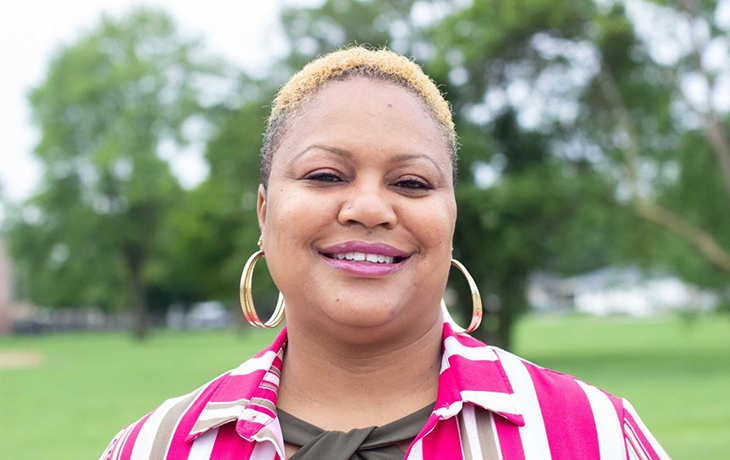by Oseye Boyd, The Indianapolis Recorder
“We wish to plead our own cause. Too long have others spoken for us.” Those were the words written on the front page of the first edition of the Freedom’s Journal, the first Black-owned newspaper in the U.S.
Founders Samuel E. Cornish and John B. Russworm grew tired of Black people being excluded in the debate over abolition, so they decided to make their voices heard by creating their own space to do so. First published March 16, 1827, Freedom’s Journal gave birth to the Black Press. This week we celebrate 195 years of the Black Press.
Almost two centuries later those words ring true. We still wish to plead our own cause as others continue to speak for us. We still occupy an important space in journalism. Some ask if the Black Press is still needed today since Black people work in white-owned media outlets now.
My answer is a resounding, “Yes! We are still needed.”
It’s true that Black people are covered much better than they were before by mainstream media. Historically, Black people were excluded from those papers. When we were covered, the stories often centered around slave auctions, stereotypes, crime and lynchings. We were dehumanized. Regularly and thoughtlessly. We didn’t matter.
Today’s coverage of Black people does a much better job of showing our humanity, but it’s still not enough. There are still too many articles printed with racial bias — or articles not printed because of racial bias.
There are still too few Black people in newsrooms as reporters, editors and executives (managers) making decisions about what to cover and how to cover Black people.
Let’s keep it real, as long as Black people are treated as second-class citizens there will always be a need for the Black Press. We show Black people as people. People who celebrate weddings and graduations, go to church, school and work, save lives, commit crimes, vote, cry, laugh, dance, care about their children, their parents, save their money, want a better life, etc. My point is: We do everything any other American does. The Black Press shares these stories day after day, week after week and year after year. The Recorder, the nation’s fourth-oldest weekly, has been in the business of telling the stories of Black life in Indianapolis for 127 years.
We tell the truth. For far too long when it came to Black people, white-owned publications didn’t tell the truth. Journalists are tasked with writing without bias. That’s a tall order coming from people who often wrote with nothing but bias — explicit and implicit — against Black people. This is why I stand strong on the belief that in my role as a journalist at a Black-owned and Black-serving newspaper I must advocate for Black people. No one accuses white reporters and editors of bias toward white people. Yet, the implication is Black people can’t cover Black people fairly. Yes, we can and we do. We exist to cover Black people fairly because it wasn’t being done. We’re living up to the ideals of journalism taught in journalism school.
I am honored to be a part of the Black Press. I’m proud to continue the legacy of being a voice for the voiceless, advocating for Black people and telling our stories. We don’t always get the respect we deserve from those outside the Black community — and even those in the Black community. There are those who believe because we are Black owned and serve the Black community of Indianapolis, we are inferior journalists, and we’re often treated as such. Our journalists are just as — if not more — talented than any other journalist, and our product isn’t an inferior, second-class product, but it’s apparent many believe this when our reporters call sources, and those calls aren’t returned — but we see other media outlets interviewed those same people about the same issue.
I call it the plight of the Black Press. It’s always an uphill batter, but it does little to deter us. In fact, it pushes us to work harder because we believe our readers deserve better. We believe our readers deserve the same respect as any other media outlet’s audience. Our readers reside in this city too, and they have a stake in the outcomes just as any other citizen. We won’t let our audience be treated as inferior or second class just because others do.
I doubt Samuel E. Cornish and John B. Russworm knew they started a movement that would endure for generations, but they knew it was time for us to tell our stories in our own voices. The tradition continues.
(Reprinted from the Indianapolis Recorder)









